Our History.
Watch full video
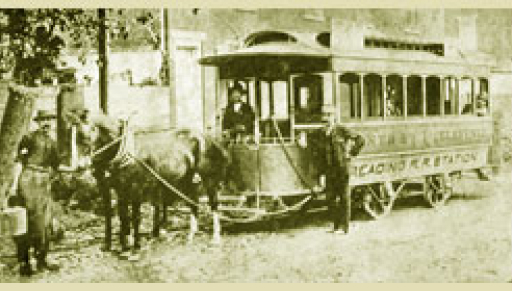
1835
Charles E. Ellis MAKES HIS FORTUNE
Charles E. Ellis was born in Philadelphia, PA. After studying in Alexandria, Va., Charles returned to Philadelphia and entered the lumber business with his father, Amos, who made a fortune during the development boom of North Philadelphia. His father later became president of the Citizens Railway Company. The horse-drawn trolley cars were similar to old-fashioned stagecoaches, except they ran on rails and were pulled by horses or mules. When Amos died in 1888, Charles assumed the role of President of the trolley company which eventually became today's SEPTA. Charles was instrumental in the development of the Market Street Elevated Lines which opened in 1907.
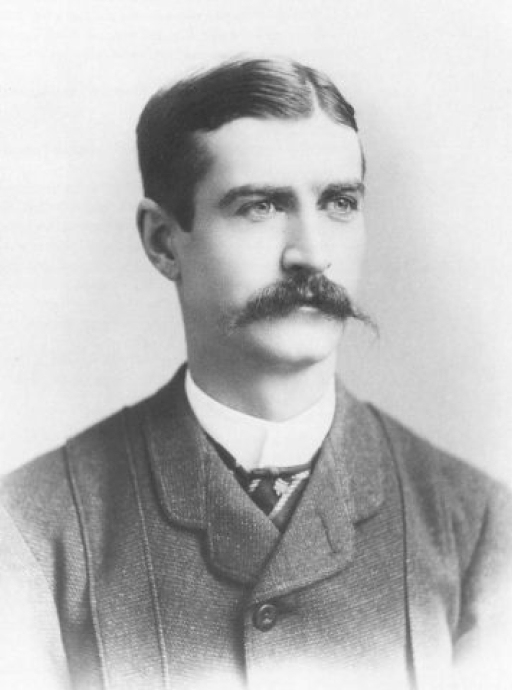
1909
FULFILLING A DREAM
He had been suffering from tuberculosis of the glands (known today as Hodgkins Disease), rheumatism, and neuralgia. When his physician advised him his condition was incurable he took to his bed where he remained until his death in April 1909. Charles’s Will left the bulk of his four million six hundred thousand dollar estate toward fulfilling his dream of establishing a school to provide free education and maintenance for fatherless girls. The Will stipulated that the principal was to be invested until the income accumulated to $100,000. Thereafter, the expense of operating the school was to come from income only and the principal was to remain intact. Charles’s Will stated that girls from Philadelphia were to be selected first and the students were to be educated and maintained only from ages 13 to 17. It also stipulated that the school be located along a trolley line.

1919
THE SCHOOL FINALLY OPENS
After years of delay brought on by legal challenges, the "Charles E. Ellis School for Fatherless Girls" was opened in Whitmarsh on leased land known as the William Disston property (now Militia Hill) while plans for its permanent home were being developed.

1920
Permanent Location is Selected
In December, 234 acres and several existing buildings, including the "White House", the "Taylor House", a brick swimming pool and a barn were purchased for $125,000. The Newtown Square location was selected in large part because his Will stipulated that the school be located along a rail line. At that time a trolley line constructed by Ellis' former company ran down the center of what is now West Chester Pike. Soon after, John Toorey Windrim whose father designed several buildings at Girard College was commissioned to design several new buildings to be constructed on the Newtown Square Campus.

1923
Move to the New Campus
According to legend, approximately 60 girls along with the school staff made the long walk from Whitemarsh to Newtown Square for the official opening of "Charles E. Ellis College". Their new campus included the newly constructed Ellis Hall along with 4 Cottages (4,5,8 and 9) known as Mary Lyon, Jane Addams, Betsy Ross and Clara Barton. Each cottage was home to 17 girls. Construction of Cottages 6 and 7, Louisa May Alcott and Elizabeth Frey, were delayed nearly 10 years by petitioners to the court claiming the Will's intent was to have the school built in Philadelphia and poor girls were not benefitting as intended.
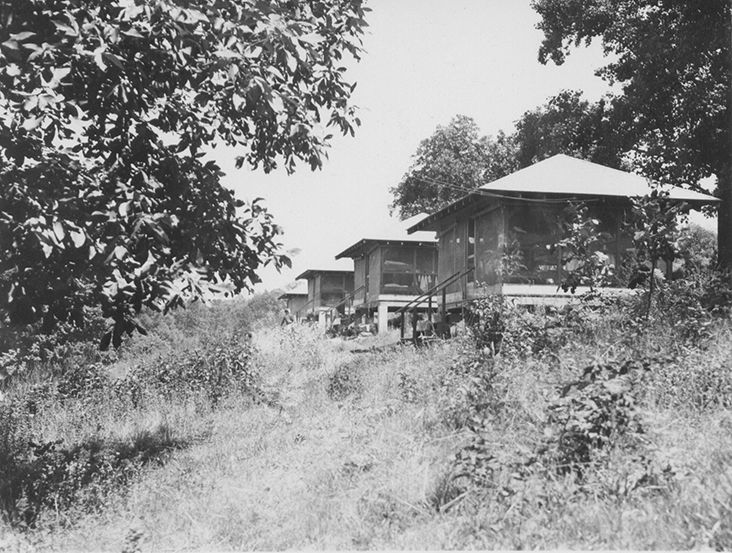
1932
Camp Ellis is established
Camp Tonawanda, later named Camp Ellis, was established. The girls only went home for one month in the summer and the remaining summertime was spent at the camp which was located on the property's western 100 wooded acres and included a 150 x 40 foot swimming pool, 13 huts, a central lodge and outdoor theater along with tennis courts and playing fields.
By this time, Ellis College had graduated 48 girls, all of whom attended local public high schools since Ellis College did not have the equivalent of a high school curriculum nor accreditation.
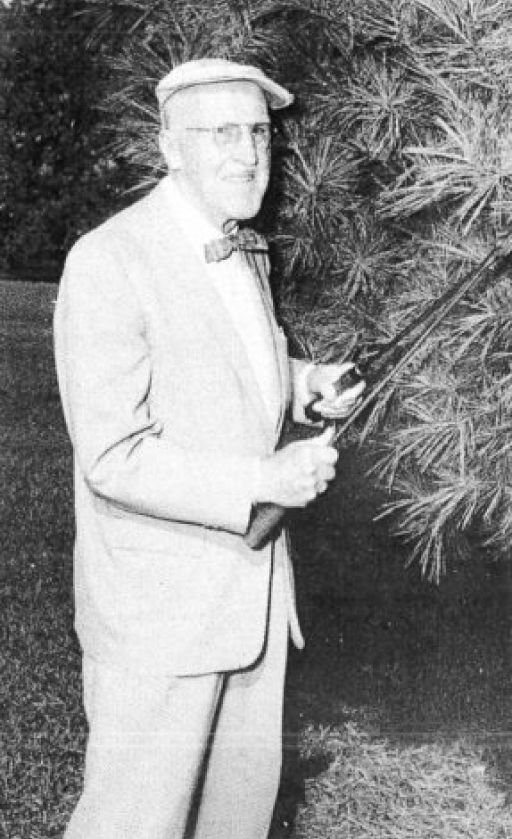
1936
The school becomes accredited
Following the addition of a library and improvements to the curriculum, the school was accredited by the Pennsylvania Department of Public Instruction and by the Middle States Association of Secondary Schools and Colleges.
Mendelson Meehan was hired as horticulturist. Under his direction, the school's campus became a registered arboretum with 600 varieties of trees and inaugurated an annual tree planting day. Most of those plantings have been carefully preserved and are professionally tended to today

1942
Ellis campus expands
The Trustees expanded the Ellis campus through two land purchases from the Dupont family. The 60 acres included the historic "Square Inn" built in 1742 which was hosted for a time by John West, father of the internationally famous artist Benjamin West.
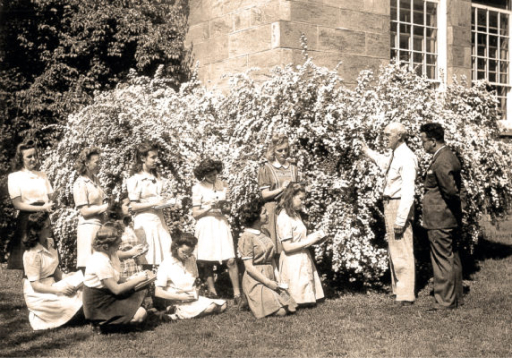
1949
Enrollment Basis is broadened
In an effort to obtain finances to extend the Ellis Trust and to expand recruitment, the Orphans Court of Philadelphia, which had jurisdiction over the trust, authorized the admittance of tuition paying students. Now, activities offered by fashionable private schools such as horseback riding were offered to attract tuition paying students. Likewise, the school was renamed "The Ellis Country School for Girls" and thereafter the orphaned girls were referred to as "scholarship girls". This was a significant departure from what Charles Ellis had in mind.
Students from Latin American countries were admitted to the school. Most came from families of wealth and were sent to Ellis just to learn to speak English.

1951
A Reimagined Ellis Hall opens
Following a devastating fire Ellis Hall was rebuilt. The former administration building was redesigned to provide classrooms, the library, an art studio, a science laboratory, and ten sound-proofed music and practice rooms. That same year, the beautiful new Commons Building was completed with a dining room and seating capacity of over 300 which also included home economics laboratories.

1952
camp ellis opens to the public
Camp Ellis was now open to the public on tuition basis. In addition to boarding students, daytime only students were now being accepted. Tuition per semester ranged from $150 for kindergarten to $375 for senior high school.

1954
Ellis school hits a road block
Because of concerns over its mounting operating deficits, an appraisal of the Ellis Country School was presented to Judge Charles Klein, by the Vice President of the Provident Trust Company of Philadelphia. The appraisal found the organization to be too complicated and overstaffed. It suggested closing camp Ellis because and stated that too many teachers were employed and that too many courses were being offered that were not required for higher education. Furthermore, the assessment found the school unable to develop local recruitment programs and pointed out that students’ records were being poorly kept. It also recommended closing the Garratt-Williamson Lodge expansion which only had 18 students. The observers concluded that the school had lost sight of the fact that its main purpose was to provide an education and home for fatherless girls and that Charles Ellis had never intended to provide a “finishing school” for girls capable of paying tuition.
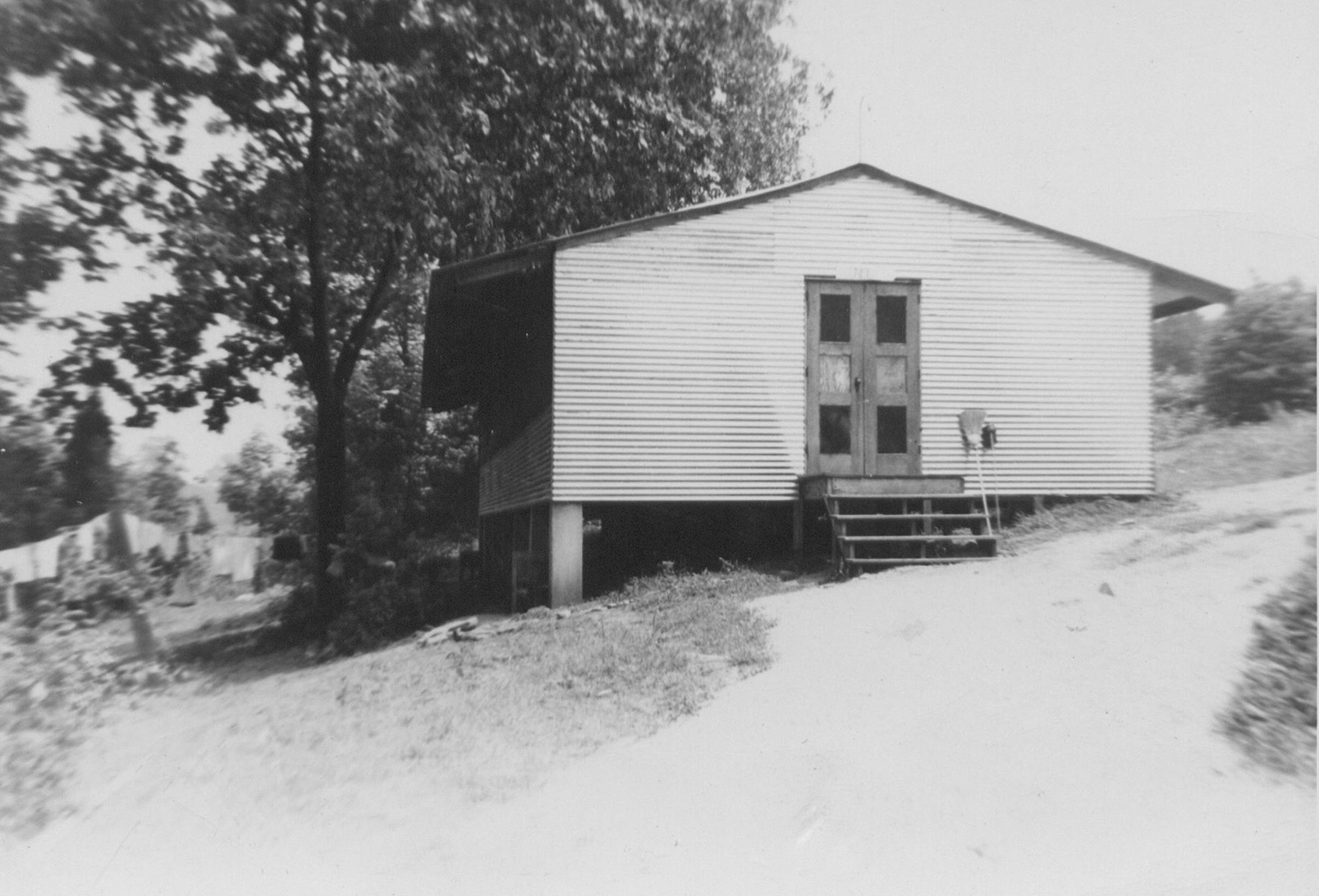
1956
camp ellis closes its doors
In 1956, after years of operating at a loss which further beleaguered the school's financial situation, Camp Ellis closed its doors.
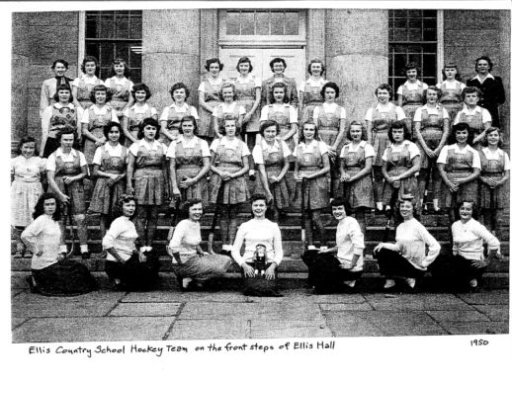
1957
A double Standard
The "tuition girls' now outnumbered the orphaned "scholarship girls" who were becoming disenchanted by the school and claimed that there was a double standard for treatment by the staff and administration. By then, tuition for those paying was now around $1700 per year. Less than two years later, the school's name was changed, once again, to The Charles E. Ellis School.

1962
The campus continues to grow
A new infirmary building was designed and completed.
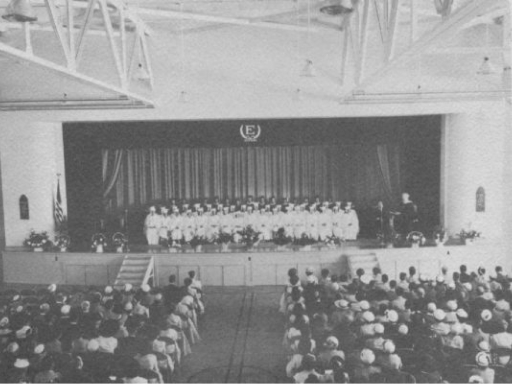
1963
A graduating class of sixty
A new Library and additional classrooms were built. The graduating class consisted of sixty students, of which all but ten were tuition-paying students. Not long afterwards, in an effort to eliminate the apparent distinction between scholarship girls and the wealthier tuition paying students
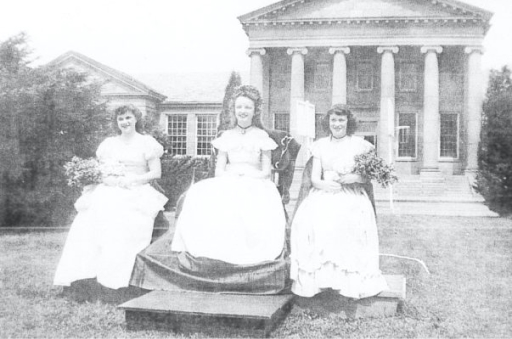
1967
a true cultural institution
Of the 225 students in The Charles E. Ellis School, 136 paid tuition of approximately $4,200 per year and the other 89 were "scholarship girls". A new art and dance studio was added.
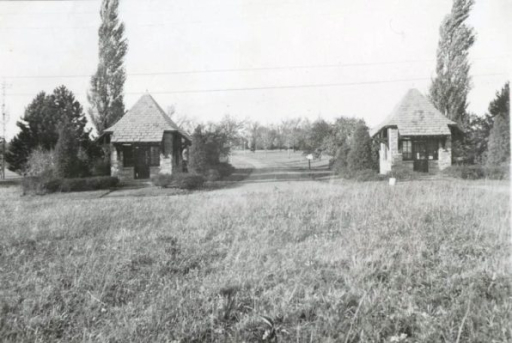
1968
The first Black student
The first Black student entered Ellis. Before the school’s closure the student body was at least a third non-white. Operating deficits continued to rise.
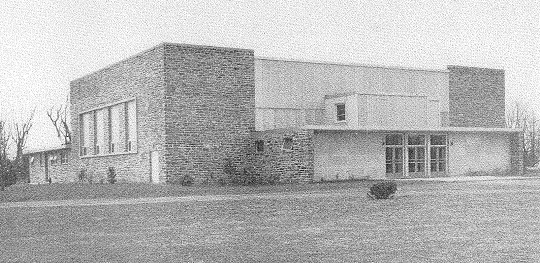
1971
Athletic expansion
In spite of a new round of financial concerns stemming from five consecutive years of operating deficits, a new wing dedicated to dance and an art studio was added to the gymnasium.

1973
Concerns continue to mount
The Provident Trustees commissioned a report outlining the future viability of the Charles Ellis School The report cited numerous divergences from specific provisions of his Will and offered two recommendations. First, if left open, the school should be operated in strict accord with the Will; most significantly, as a free education for fatherless girls. The second was to close the school and utilize the principal balance of the Trust to provide scholarships for these girls. The latter recommendation was preferred by the Trustee but opposed by students and faculty. Philadelphia Orphans Court after hearing both sides, decided that there would be a three year probation period to remedy operating deficits.

1977
the end of an era
Despite the pursuit of multiple alternatives to solve the financial crisis, Judge Charles Klein of Philadelphia Orphans’ Court ruled that the school must be closed at the end of the term. President Robert F. Good presided over the closing of Ellis on June 11, 1977, the day of its 45th commencement. The Ellis graduating class joined by all 73 undergraduates who could now never be Ellis graduates raised their voices in the Ellis School Hymn.
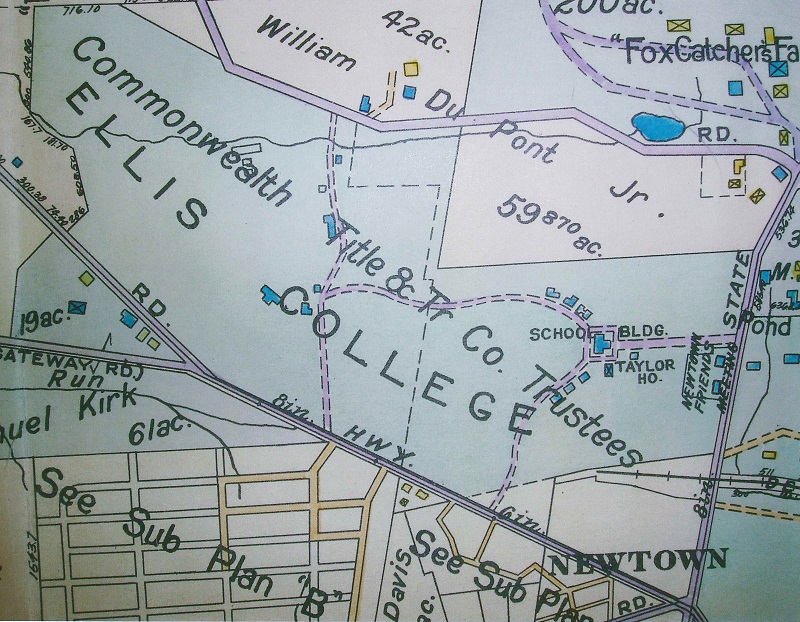
1978
The Ellis School campus is sold to benefit the Charles Ellis Trust
The 313 acre Ellis Campus was sold to Atlantic Richfield Company for $6,100,000 which along with the proceeds from the sale of personal property was added to the principal balance of the Trust which altogether approximated $12,000,000.
PNC and the Court made a wise decision to close the school. The Ellis Trust Fund is valued at approximately $40 million. Since 1981, it has awarded over $20 million to assist orphaned and functional orphaned girls attend the schools of their choice. The Fund awards approximately a million and a half dollars yearly to assist two thousand Philadelphia girls.
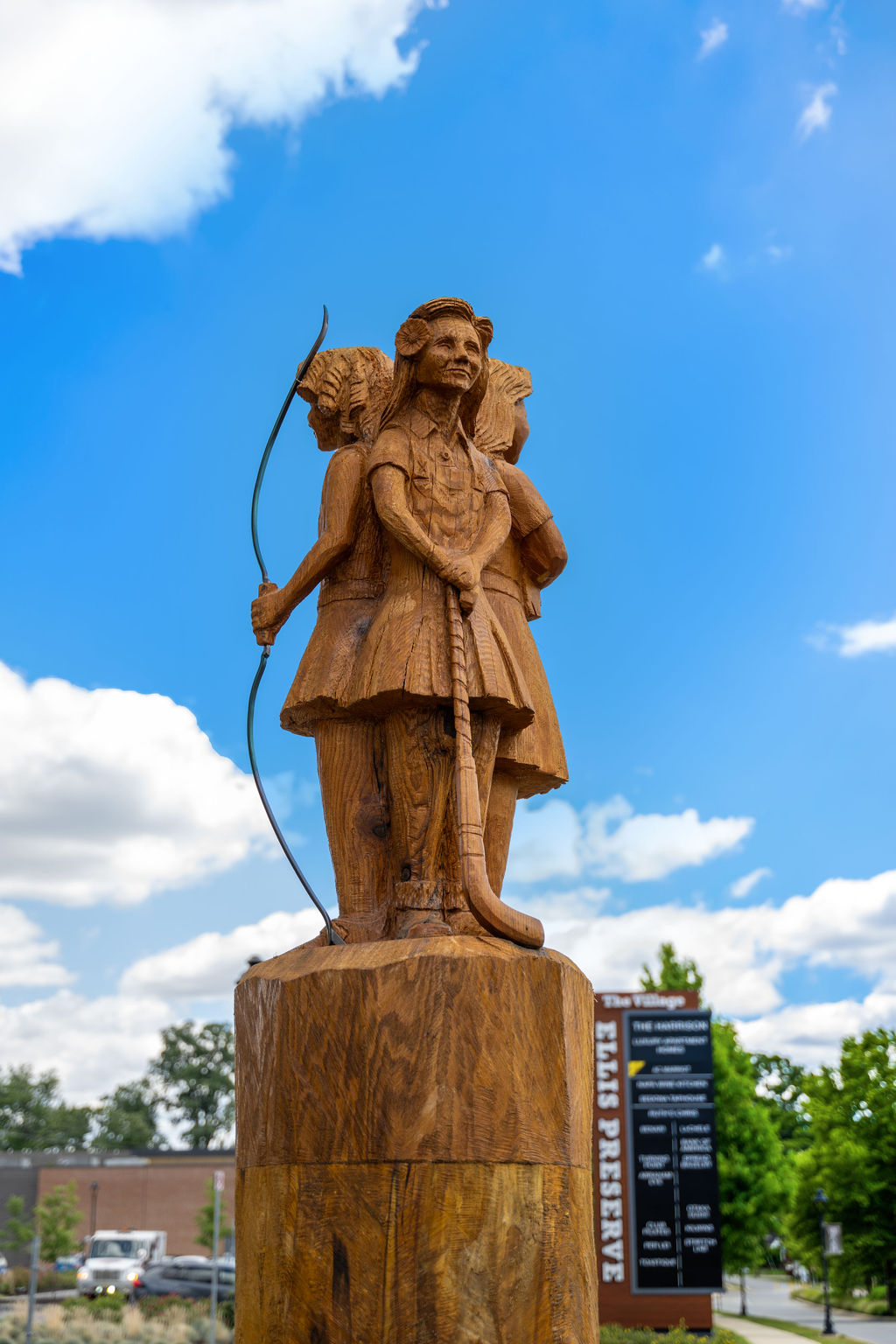
“The Gift”
The Charles Ellis School for Girls was far more than an academic institution; it was a nurturing home for fatherless girls where the values of education, art, sports, and sisterhood were woven into the fabric of everyday life, shaping the experiences of over 1,400 students between 1923 and 1977.
This well-rounded experience was made possible by an endowment from Charles E. Ellis, who aimed to address a significant social problem of the time being that the average life expectancy in the United States was only 47 years, leaving many children orphaned.
“The Gift” honors the students of the Charles Ellis School and their passions, excellence, and resilience found in the community.
While the school itself no longer operates, Charles Ellis’ gift continues to fund the education of young girls today through The Ellis Trust for Girls. For more information on the trust, please visit: EllisTrust.org.
Sculptor, Marty Long: MartyLong.com
Ellis Preserve today
Creating Community ~ Enriching History
Equus Capital Partners is dedicated to honoring the legacy of Charles Ellis through the preservation of his story and the story of the school he created here at the center of Newtown Square. We are committed to developing the property in a manner that respects and preserves the historic architecture and landscape while we work diligently to provide new opportunities for the community to become a part of that story.

